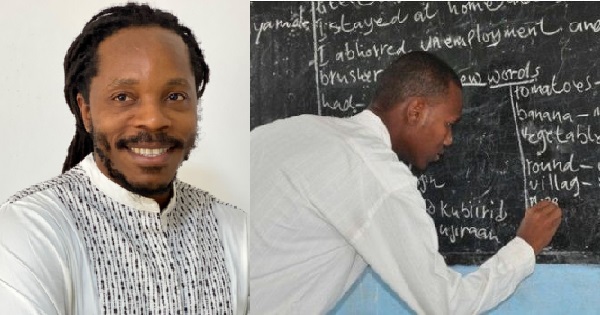Minister of Basic And Senior Secondary Education, David Moinina Sengeh has held a frank discussion on his social media platforms about Teachers- wages and the workforce
He updated the public on the quick status report on teachers… their numbers and the wage bill. He started by reminding everyone that more than one thing can be true at the same time.
Minister Sengeh believes Teachers could feel they need more improved conditions and Government and partners would still have improved their conditions of service in comparison to the recent past.
He confirms that there are teachers who would be dissatisfied and there would be those who are content with what they have. Teachers who feel like they want to sit at home and not be in class in protest and there are those who truly love their selfless profession of service who teach even on holidays.
He cautioned the public that before further deepening their beliefs as the only truths, he invite you to hold space that what others are saying and feeling could also be true.
He further pointed out that Secondly, the Teaching Service Commission (TSC) is a credible institution which is actively transforming Teachers, Teaching, and the Teaching Profession in Sierra Leone.
He presented some numbers to inform discussions. He revealed that there are:
– about 68,744 teachers in public schools (ASC, 2021 draft)
– Among public school teachers, there are 36,069 on the payroll (March 2022)
– As seen in the data from the Ministry of Finance, teachers make up 40.3% of the total workforce (nearly half)
– Teachers’ salary accounts for 20.2% of the wage bill- the largest among other classes of employees. An additional 7.4% of the wage bill goes to lecturers and staff in tertiary institutions.
He further revealed that public sector decision making must be well informed by data, open, and fully participatory. He confirms that Yes, ultimately they as the leaders make the decisions (that’s why we were voted for anyway) but they believe you should be part of that process.
1. Noting that they have about 30,000 teachers not on the payroll, if you have a little bit of extra money (and note the expanding wage bill mostly because they hired more teachers, more health workers and increased their salaries), how might you spend it? Would you add more teachers on the payroll or increase the salaries of those teachers on the payroll? This year, government decided to add an additional 1,000 teachers to the payroll (September) and also complete reassessment and salary upgrade of 1,000 teachers (April payroll) instead. He emphasized.
He draws the public attention that the that there are many communities in rural areas with no teachers on payroll. He revealed that they are all community-supported teachers paid off the subsidies government gives to schools. So while they are not on the payroll, government supports them nonetheless. He also notes that 3,000 other teachers are being reassessed). What would you do instead and why? he asked an emotional question
2. ”Improved conditions of service: often, conversations about conditions of service get to be thought of to mean solely an increase in salary. But there are so many other improvements we’ve made, will continue to make, and can make to conditions of service. We would love to explore with our community what some of those immediate improvements can be that they want. We need to think outside the box while bearing in mind our specific contexts. As an example, many of those teachers who had pin code issues and mismatches in data we help resolve. Many had date of birth mismatches and where there was a little variance/error, we engaged the authorities to correct. As of now, we have no more than 100 teachers with major mismatches issues (although critics like to make it sound like its thousands).
3. We listen. We talk. We exchange. It’s so common for these discussions to quickly be reduced to negative energy spaces. We’ve always listened to teachers. I have met several teachers across the country including sub groups with issues. We can’t listen to all 80,000 plus teachers in the system every day. That is why we have a union- the Sierra Leone Teacher’s Union and its composite Head Teachers and Principals groups. Government must be run through engagements and negotiations and our doors remain widely open.” He pointed out.
He ended by thanking teachers for their understanding and sacrifices they make.
“We see you. We honor you. We love you. We know you care for this country and are committed to our shared prosperity. That is why we thank you for staying in the classrooms.” He stated.











